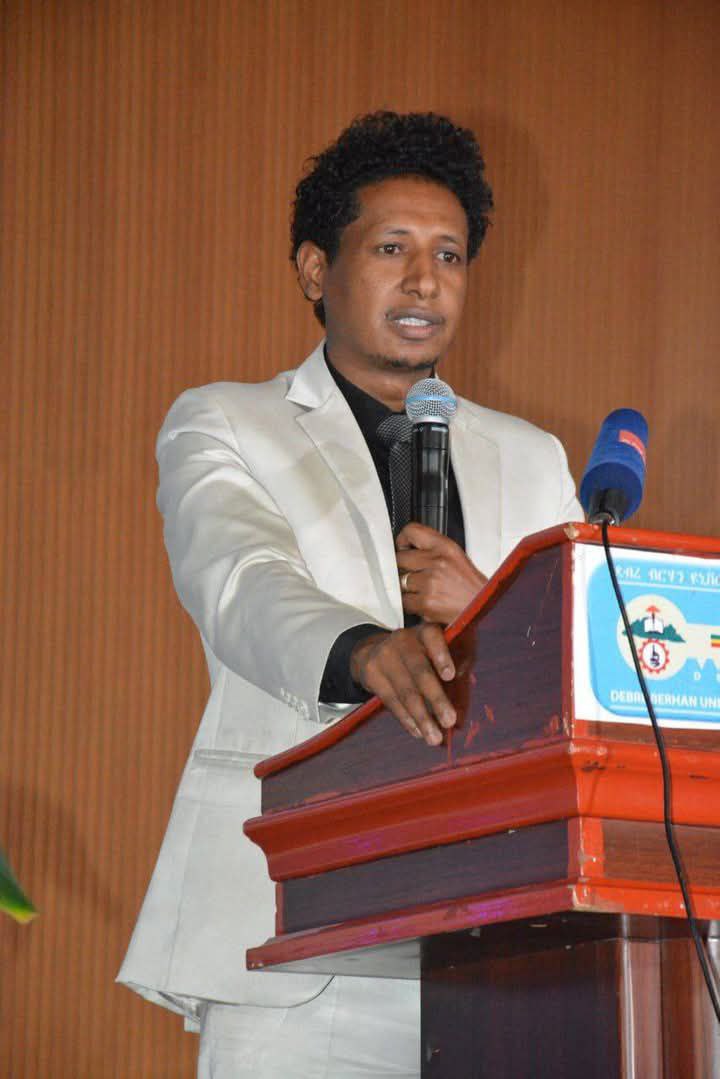- Debre Berhan, Amhara, Ethiopia
- FPR@dbu.edu.et
- +251116816286
- Staff Profile

Ongoing Projects 2021/2022
New Projects 2021/2022
Externally funded projects 2021/2022
Technology Transfer 2021/2022
Million Birr external funded 2021/2022
Articles published 2021
Research, Community Engagement and Technology Transfer have been among the core missions of DBU. Office of the Vice President for Research and Technology Transfer is responsible for leading, coordinating and facilitating the University’s research, innovation, and technology transfer (ITT), Community engagement (CE) and university-industry linkage (UIL) programs. The Major duties and responsibilities of the RCSVPO are to:
Develop and implement DBU’s research, ITT, UIL and CE policies, strategies and guidelines;
Ensure that research, CE and ITT activities of the university are relevant to the local, national, regional and global needs
Develop and periodically update research thematic areas with the involvement of key stakeholder
Develop and implement research, CE and ITT quality assurance mechanisms
Create enabling environment for academic staff to effectively engage in professional service
Create a conducive environment and organizational culture for research and CE
Oversee the general administration of collaborative project grants or funds for research, ITT, UIL and CE activities;
Overseeing research infrastructure development & management of core research facilities
Oversee ethical standards related to research, CE and ITT activities
Review DBU’s research performance through benchmarking against relevant standards to inform strategic planning and identify emerging and niche areas.
The realization of DBU’s vision can’t be achieved without fostering and nurturing the culture of research, innovation, and community engagement. To this end, the RCSVPO have introduced initiatives that support DBU’s effort in creating a strong research and community engagement culture responsive to the changing needs and demands of the society. Using a multi-stakeholder dialogue model, DBU has set forth the research, ITT and CE priorities that are relevant to social and national needs and started to implement it as of last year. We strongly believe that this research and development roadmap would be instrumental in Changing DBU’s RCE model from fragmented, individualized, demand-driven practice to a strategic and need-based model that would for sure enhance our cultural, societal, and economic impact.
Success in the mandates of HEIs is largely attributed to three complementary sets of factors: qualified Staff, students, adequate resources, and a supportive environment. Therefore, we are working to create a supportive environment for the staff to realise their potential and respond flexibly to changing needs of the locality and the country. we are also working to align teaching with research and community service activities of the university to enhance the quality & quantity of the research outputs and inform research-led teaching and learning to further enrich our student experience. For over a decade, DBU has carried out many research works & contributed its part for the overall development of the surrounding community and the country at large.
The university has excellent records in the administration and management of collaborative projects. Presently, DBU is running several collaborative projects with international and national partners. The university welcomes development practitioners, researchers, HEIs and other development organizations interested to collaborate with us in the areas of research, CE, UIL and ITT activities.
Thank you for taking the time to learn more about DBU. I hope that you will stay connected to this young university and support the effort in establishing an environment in which Research and CE excellence is valued. I confirm that DBU is committed to embedding stakeholders’ engagement as an integral part of our Research and CE culture.
1. Research, Publication and Dissemination Directorate
2. Community engagement Directorate
3. Innovation and technology transfer Directorate
4. University industry linkage Directorate